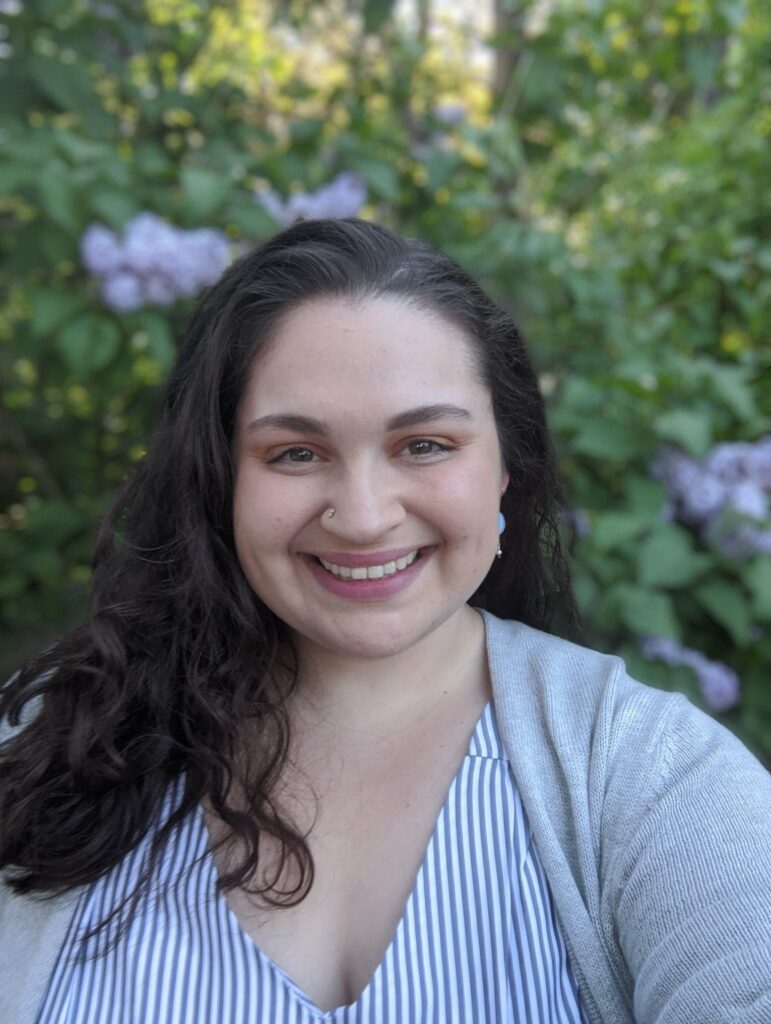Staff Spotlight: Stephanie Capsuto

Stephanie Capsuto is a science librarian. In her role, she helps students with research projects and hopes to get more STEM students into the archives and special collections. Capsuto began working at the college in May.
Q: Where are you from?
A: I grew up in Westchester, New York — so about an hour north of New York City. I did my undergrad at Smith College, then I spent two years doing grad school at the University of Michigan where I studied library science. I just moved back to Massachusetts in April.
Q: Why did you choose to work at Amherst?
A: I love the idea of working at a liberal arts college and what it stands for. Being a librarian at a place like this is nice because there are small classes; you get to know students and really help them. So when I saw the position open at Amherst, it resonated very strongly with me and also with my undergraduate experience at Smith College. I really wanted to be a part of the close-knit community that Amherst has and so it fit very well.
Q: What does being a science librarian entail?
A: As a science librarian, I’m here to help make student research successful. I help students cite sources and figure out what sources to use and where to look for them. I also teach most of the citation software workshops on campus. It can be quite challenging in STEM because a lot of people think of research as just being in a lab, but there’s really so much more to it than that.
Q: Did you always know you wanted to be a librarian?
A: I actually spent all four years at Smith thinking I would apply to do a Ph.D. in biochemistry. Then one day in my senior year, I realised I didn’t want to do that anymore, so I went into my advisor’s office crying — he is actually an Amherst alum — and he was really supportive about it. At Smith, I had loved working at the library, and so in the spring of my senior year I started talking to the librarians about why they chose their job and what it meant to be a subject specialist. What they said really resonated with me, so I looked into some grad schools and saw that one of them still had applications open for another week. I felt really passionate about it so I sat down and wrote the essay in about an hour, and now here I am!
Q: What is your favourite part about being a science librarian?
A: I really love meeting with students — I think it’s really great to hear what they’re doing and be able to help them get through big tasks like theses and just remind them that it’s okay to feel confused or worried.
Q: How has the pandemic affected your job this semester? Have there been any unexpected positive impacts?
A: I started at Amherst in May, so I’ve only ever been remote — I have an office in the Science Center that I’ve never been to, so that’s interesting. But one good thing about the situation we’re in is that people are more willing to ask for help from the library. We’re getting a lot more requests for teaching classes and working with students and that’s really nice to see. I hope that when Covid has passed, students continue to come to us, because we’re always here to help.
Q: Do you have any long-term goals for what you’d like to achieve here at Amherst?
A: One of the things I’m working on is getting more science students into the Archive and Special Collections. A lot of science students don’t think there’s anything in there for them — I know I thought that as an undergrad at Smith — but there’s a lot of scientific data there too. We even have daily weather records that go back to when the college opened! Amherst also has a history of having a lot of geologists, so we have geologists’ lab notebooks from the late 1800s and early 1900s.
Q: Do you have any science books to recommend at the moment?
A: “The Hidden Life of Trees” is a good one — it’s by a forester from Germany, and he talks about how trees are all interconnected by fungi and how they communicate. Another great one is “Napoleon’s Buttons,” which talks about chemistry that has changed the world.
Q: Do you have any tips for college students?
A: Definitely. Ask for help if you need it and know that you are not alone; whatever you’re feeling — anxiety, loneliness, stress — you’re not the only one. And do not pay for academic papers or journal articles; the library will get them for you!





Comments ()